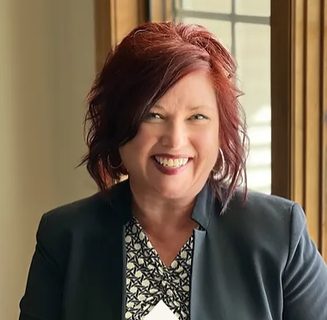By Tom Still
MADISON – In late April, at a private research center south of Madison, a group of scientists, academics and even religious leaders will gather to talk about the ethical choices presented by biotechnology’s expanding knowledge of the human brain. Hovering over the forum will be the memory of Terri Schiavo.
Every day, scientists and medical experts struggle with ethical questions surrounding patients such as Schiavo, the brain-damaged Florida woman who died last week nearly two weeks after her feeding tube was removed. Those questions will only get tougher to answer as science marches on – providing therapies that prolong or alter life, and unlocking secrets as old as human life itself.
At the April 21-22 Bioethics Forum sponsored by Promega Corp., one of Wisconsin’s leading biotechnology firms, researchers and ethicists from across the United States and beyond will gather to talk about the promise of biotechnology, and the emerging array of choices that promise may bring to society.
For example, one panel will discuss “Ethical Issues in the Creation of Chimeras,” which will focus on biotech’s prospects for growing human organs inside animals and then transplanting those organs into humans. Another provocative panel is titled “Patenting the Minotaur,” a reference to the mythical half-man, half-bull. Could science someday create a creature that is part human and part animal – and could someone “own” the product?
Much of the conference will focus on the promise of stem cell technology, especially in neural stem cell research, where clinical trials are nearing the point at which human subjects could be tested. Could a patient as brain-damaged as Schiavo someday recover some or all of her lost brain functions? And how might that new therapy change how family members and physicians view end-of-life decisions?
Even if Terri Schiavo had not become a household name across America and much of the world, there would be no shortage of ethical dilemmas associated with scientific advances. This is the fourth Bioethics Forum sponsored by Promega, and others like it are being held in cities across the nation as ethicists try to stay ahead of the on-rushing train of science.
The mapping of the human genome has led to an explosion in scientific knowledge, and research into human stem cells is only just beginning. Just as millions of people wondered if Schiavo was conscious of what was happening to her, many scientists wonder what happens when their work begins to touch upon the spirit.
In fact, one panel at the Bioethics Forum will ask that question directly – and involve religious leaders such as the bishop of Madison’s Catholic Diocese in the discussion. “Is there a point at which researchers and neurosurgeons might be affecting not just the body, but also the spirit or soul?” asks the forum brochure.
These kinds of forums are healthy exercises, not only for researchers but for members of the public who grapple with end-of-life questions. One panelist at the Madison forum will be Laurie Zoloth, a professor of medical ethics at Northwestern University. Zoloth reflected on the Schiavo story last week in an interview with the Associated Press.
“It was the most profound national discussion we have had about death, about family and about decision-making that I’ve ever witnessed,” she said. “It has made every American family confront with seriousness of purpose, with passion and with love what the limits of medicine are, and what the ends of human life ought to be.”
The search for answers will involve people on the cutting edge of science as well as those who must live with the results. The discussion has been joined, and most Americans are eager to hear more. The Bioethics Forum in Madison is a timely example of how the borders between science and ethics deserve as much exploration as science itself.
Still is president of the Wisconsin Technology Council. He is the former associate editor of the Wisconsin State Journal in Madison. To learn more about the forum, go to http://www.btci.org/bioethics




